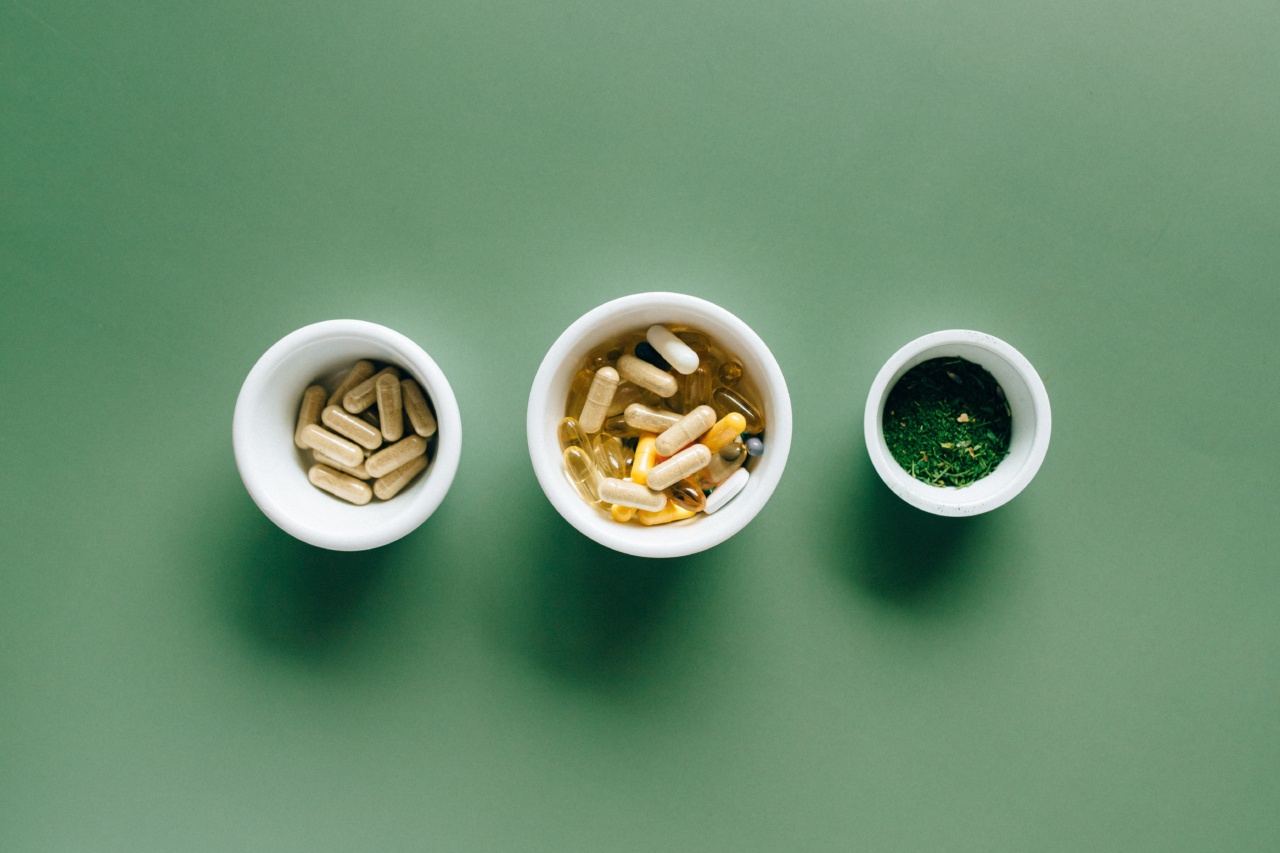Stress has become a regular part of modern life, affecting millions of people worldwide.
The demands of work, relationships, and other responsibilities can easily overwhelm us, leading to chronic stress that can have a detrimental effect on both our physical and mental health. While there are various ways to manage stress, one natural and effective approach is through the use of herbal supplements.
These supplements, derived from plants and herbs, have been used for centuries in traditional medicine to promote relaxation, calmness, and overall wellness. In this article, we will explore some of the best herbal supplements to manage stress.
1. Ashwagandha
Ashwagandha, also known as Withania somnifera, is an adaptogenic herb commonly used in Ayurvedic medicine. It has been shown to reduce the production of stress hormones such as cortisol, thereby promoting relaxation and improving overall well-being.
Ashwagandha is also known for its ability to support the adrenal glands, which play a crucial role in our stress response. Taking an ashwagandha supplement can help reduce stress, improve sleep quality, and enhance cognitive function.
2. Rhodiola Rosea
Rhodiola rosea is another adaptogenic herb that has been used for centuries in traditional medicine to combat stress and fatigue.
It helps increase the body’s resistance to stress by regulating the release of stress hormones and supporting the adrenal glands. Rhodiola rosea is also known for its mood-enhancing properties, helping to reduce anxiety and promote a sense of well-being.
Studies have shown that supplementing with Rhodiola rosea can improve energy levels, enhance cognitive function, and reduce symptoms of stress-related burnout.
3. Holy Basil
Holy basil, also known as Tulsi, is revered in Ayurvedic medicine for its ability to combat stress and promote relaxation. It is rich in antioxidants and has adaptogenic properties, enabling the body to better cope with stressors.
Holy basil also helps regulate cortisol levels, reducing the negative effects of chronic stress on the body. In addition to its stress-relieving properties, holy basil has been shown to have anti-inflammatory, anti-anxiety, and antidepressant effects.
4. Passionflower
Passionflower is a beautiful flowering plant that has been traditionally used to treat anxiety and insomnia.
It contains compounds that help increase the levels of gamma-aminobutyric acid (GABA) in the brain, which promotes relaxation and reduces anxiety. Passionflower is often employed as a natural remedy for those experiencing nervousness, restlessness, or difficulty sleeping due to stress.
Clinical studies have demonstrated the effectiveness of passionflower in reducing anxiety levels and improving sleep quality.
5. Lemon Balm
Lemon balm is a member of the mint family and is well-known for its calming and soothing effects. It has been used for centuries to reduce stress, anxiety, and promote relaxation.
Lemon balm contains compounds that inhibit the enzyme responsible for the breakdown of GABA, thereby increasing its availability in the brain. This leads to a reduction in anxiety and an overall feeling of calmness. Lemon balm supplements or teas are a popular choice for individuals looking to manage stress and improve their mood.
6. Chamomile
Chamomile is a gentle herb that has been used for centuries to soothe nerves and promote relaxation. It has natural sedative properties and contains compounds that bind to receptors in the brain, reducing anxiety and promoting sleep.
Chamomile tea is a popular choice for individuals looking for a natural way to unwind after a long, stressful day. Chamomile supplements are also available and can be beneficial for those who prefer a more concentrated form of the herb.
7. Valerian Root
Valerian root has been used for centuries as a natural sleep aid and relaxant. It works by increasing the levels of GABA in the brain, promoting relaxation and reducing anxiety.
Valerian root is often used to alleviate insomnia, restlessness, and nervousness caused by stress. It is available in capsule form or can be brewed into a tea for its calming effects. While valerian root is generally safe, it is advisable to consult with a healthcare professional before using it, particularly if you are taking other medications.
8. Kava Kava
Kava kava is a plant native to the South Pacific islands and is known for its anxiety-reducing properties. It is often used to promote relaxation and relieve stress-related symptoms.
Kava kava works by affecting the brain’s GABA receptors, inducing a sense of tranquility and calmness. However, it’s important to note that excessive or prolonged use of kava kava may have negative effects on the liver. It is recommended to seek guidance from a healthcare professional before using kava kava supplements.
9. Ginseng
Ginseng is a popular adaptogenic herb used in traditional Chinese medicine to combat stress and improve overall well-being. It helps regulate the stress response by reducing cortisol levels and promoting a sense of calmness.
Ginseng is also known for its energy-boosting properties, helping individuals better cope with the physical and mental demands of stress. Whether taken as a supplement or consumed as a tea, ginseng can be a valuable addition to a stress management routine.
10. Lavender
Lavender is widely recognized for its soothing and calming effects. The scent of lavender has been shown to reduce anxiety and induce relaxation.
It has also been found to improve sleep quality, making it beneficial for individuals dealing with stress-related sleep disturbances. Lavender supplements, essential oils, or dried lavender can be used to harness the herb’s stress-relieving properties.
Conclusion
Managing stress is essential for maintaining optimal health and well-being, and herbal supplements can offer a natural and effective way to combat stress.
Ashwagandha, Rhodiola rosea, holy basil, passionflower, lemon balm, chamomile, valerian root, kava kava, ginseng, and lavender are just a few examples of herbal supplements that can help manage stress.
However, it’s important to remember that while these supplements are generally safe, it’s advisable to consult with a healthcare professional before starting any new supplementation regimen, especially if you have pre-existing medical conditions or are taking other medications. Incorporating herbal supplements, along with other stress management techniques like exercise, meditation, and relaxation practices, can lead to a more balanced and stress-free life.






























